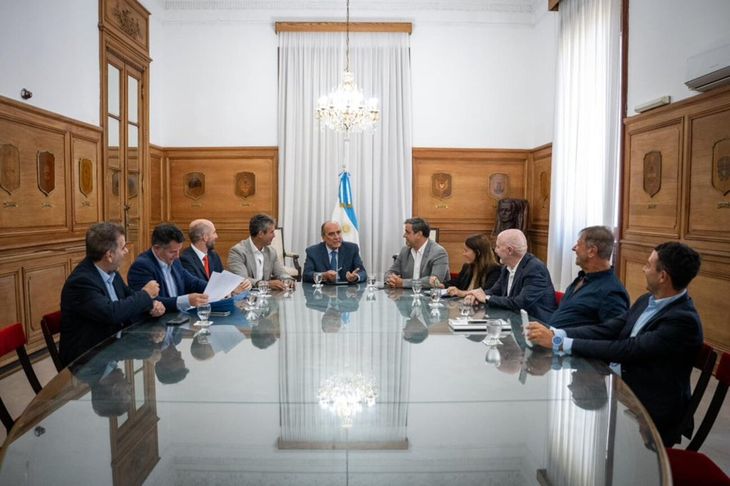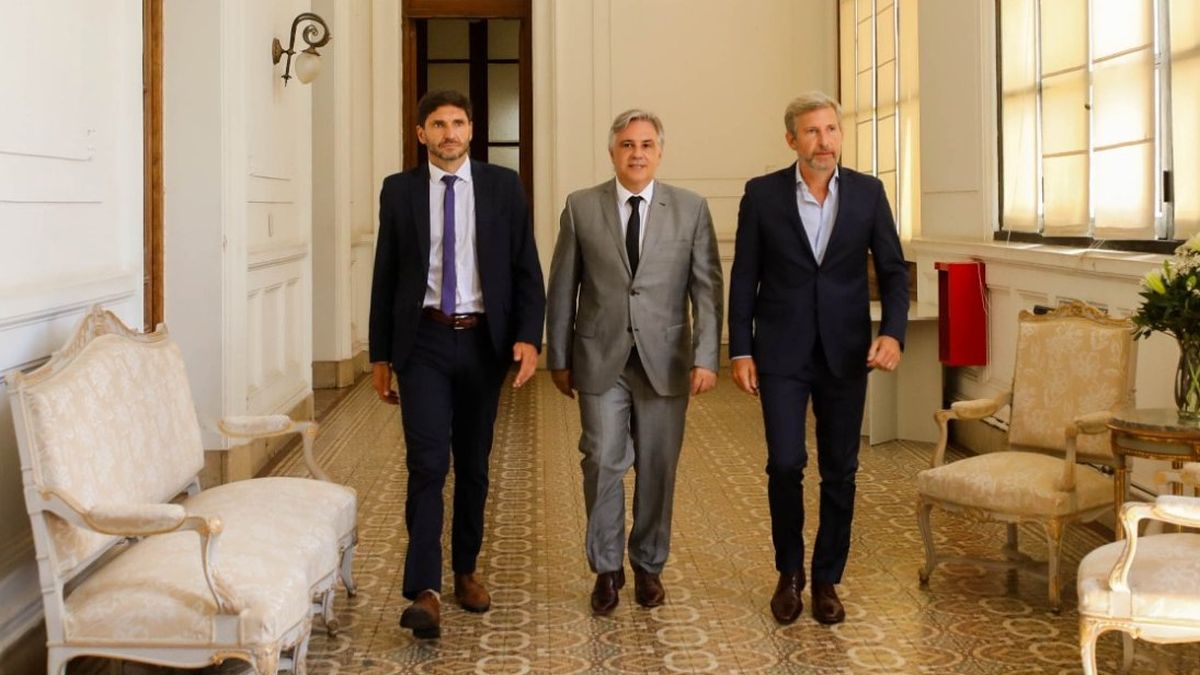“Dear, in case it was not clear, this government came to lower taxes.” Pressed by the claims that are pouring in from allied sectors, the Minister of Economy, Luis Caputocame out this Tuesday to defend the course of the libertarian administration and tried to tone it down to those who ask the Government for greater speed to relieve tax pressure.
It happens that, in the run-up to the start of the extraordinary sessions, the tax fight heats up the bond between the Nation and the governors and mayors, with crossfire from both sides. Specifically, Caputo returned to the fray with the request to suppress municipal taxes, while various provincial leaders joined the rural uprising and added volume to the conflict over withholdings.
Crossfire between governors and the Nation over taxes
In an extensive post on his X account, the official said that it is only possible to lower taxes if there is a fiscal surplus and stressed that fiscal and monetary orthodoxy is not negotiable. “I tell the provinces and municipalities that they are cordially invited to this task. We have not yet seen a province reduce Gross Income, without a doubt THE WORST TAX that an economy can have,” protested the economist, who gave up participating in the Davos Forum and returned from the US to Argentina to receive an IMF mission.
Embed – https://publish.twitter.com/oembed?url=https://x.com/LuisCaputoAR/status/1881820203408863585&partner=&hide_thread=false
Dear friends, in case it is not clear, this government came to lower taxes. Only, as a result of the inherited disaster and our terrible credit history, we can only do so if we have a fiscal surplus. It took a lot to avoid hyperinflation and achieve what we have…
— totocaputo (@LuisCaputoAR) January 21, 2025
Text and context. Caputo’s publication was not coincidental: just hours before, the governors of Santa Fe, Maximiliano Pullaro; Between Rivers, Rogelio Frigerio; and Córdoba, Martin Llaryorahad raised their voices harshly against the Government due to the situation in the agricultural sector. From Rosario, where they animated the first summit of the year of the Central Regionthe bosses showed a show of force and emphasized the need to suppress the “damn withholdings”, at the same time they warned about the crisis in the countryside.
“If the decision is not made quickly to lower withholdings, we could have a collapse in agricultural matters as happened in the 90s.. We want withholdings to be lowered so that this money remains in the hands of the producers. If the field melts, we are going to have a very bad time,” launched Llaryora in a missile aimed at the Casa Rosada. At the same time, the leaders highlighted that provincial taxes on production are only 5%, while the national burden is 67%.
The three leaders mobilized part of their cabinet to Santa Fe, where they agreed to create a table with all the agricultural players to monitor the situation.
Central Region Governors.jpg
The governors of the Central Region mobilized part of their cabinet to Rosario to address their concerns about withholdings.
Besides, They announced that 100% of the proceeds collected from the Rural Real Estate Tax – a tax paid by the provinces – will be reinvested in the sector. However, beyond praising the efforts of subnational administrations, the trio emphasized the need to obtain responses from Javier Milei.
The issue is not minor: the Central Region accounts for about 55% of the country’s grain production. Also 38% of total exports, 18% of the Gross Domestic Product (GDP) and 70% of dairy production, according to data from the Federal Investment Council (CFI).
The Peronist also joined the group of complaints. Ricardo Quintelaalthough he did not talk about withholdings but rather about municipal taxes. “It is not the municipalities or their rates that cause inflation, but rather erroneous national decisions. Caputo should further study the causes of the problem before making hasty statements,” he commented.
Government noise with allies
For the Government, the concern is twofold. On the one hand, because the incipient conflict is with the countryside, which vehemently opted for Javier Milei and today it is beginning to raise increasingly noticeable objections. On the other hand, because the situation is already impacting allied leaders, who will be key to bringing the projects to fruition in the extraordinary sessions. Added to this scenario is the irritation among the provinces due to the President’s refusal to discuss the Budget for this year.
Almost mirroring the summit of the Central Region, the chief of staff, Guillermo Francosreceived the leaders of the dialogueist blocks of Deputies at the Casa Rosada. One of them, the radical from Córdoba Rodrigo De Loredoshared the hardships of his governor and put the request for withholdings on the table. He also admitted being willing to vote “closed book” on the Budget as long as the Government gives the green light to discuss it in Congress.
Although Llaryora, Frigerio and Pullaro belong to different forces, the trio contributed key votes to Freedom Advances (LLA) at different times during the Milei administration. Although they are not all, the three ruling parties have legislators in the bloc Federal Meeting (EF)whose president, Miguel Ángel Pichettomissed the summit at Balcarce 50, upset by the Government’s constant “ignorance” to parliament. Its bench brings together a not inconsiderable number of 16 seats.
Guillermo Francos Deputies Dialoguists Casa Rosada

The Chief of Staff, Guillermo Francos, received pro-dialogue deputies at Casa Rosada.
From some administrations, however, they put a cold shoulder to the situation and recalled that the agenda called for the extraordinary ones is, for the most part, political and not economic (elimination of the PASO, Clean Record and documents of the Supreme Court, among other items ). This does not mean that eventual support or rejection can serve as a bargaining chip for the governors to enable other debates.
Caputo had lit the fuse at the beginning of 2025, when he sent a note to the jurisdictions asking them, in order to avoid increases in tax pressure, to “implement measures so that their municipalities adapt to the legislation and promote the repeal of fees” whose value “is not proportional to the cost of providing the service.”
That message did not go down well in the districts, which were already upset by the extension of the 2023 Budget, which also took effect in 2024, criticizing the libertarian administration. “National taxes are what explain more than 80% of the fiscal pressure in Argentina”responded the Minister of Economy of an important province in dialogue with Scope.
Source: Ambito
I am a 24-year-old writer and journalist who has been working in the news industry for the past two years. I write primarily about market news, so if you’re looking for insights into what’s going on in the stock market or economic indicators, you’ve come to the right place. I also dabble in writing articles on lifestyle trends and pop culture news.




